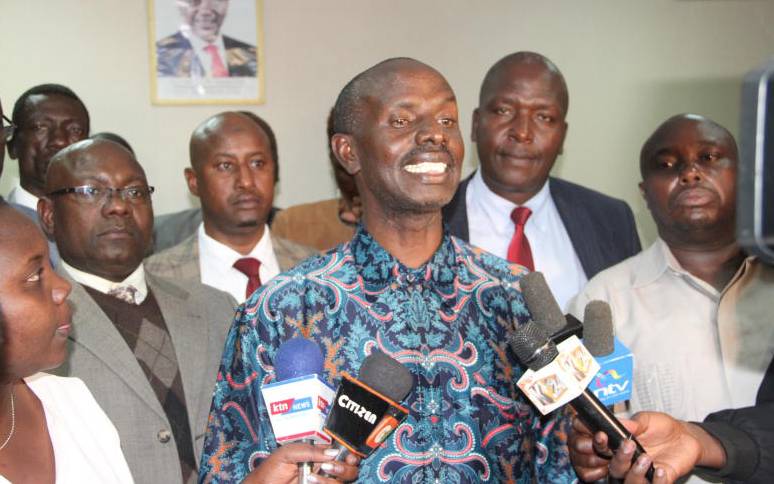×
The Standard e-Paper
Home To Bold Columnists

Kenya National Union of Teachers(Knut) Secretary General Wilson Sossion address press on 31st December 2018 at Ministry of Labour office in Upper Hill,Nairobi. [Edward Kiplimo,Standard]
The Kenya National Union of Teachers (Knut) may be headed to court after talks with the Teachers Service Commission over several issues affecting its members collapsed.